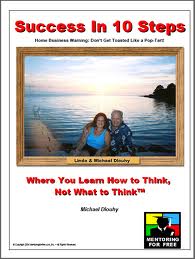On Think and Grow Rich by Napoleon Hill, Chapter7, Organized Planning, The Crystallization Of Desire Into Action, The Sixth Step Toward Riches
Posted: June 29, 2012 Filed under: Grow Rich, Personal | Tags: 28 questions, 30-Day Mental Cleanse, 31 Failures, auto-sugestion, Creative Imagination, crystallization of desire into action, desire, desire creates wealth and riches, Faith, Goals, Imagination, leadership, Mastermind, Napoleon Hill, organized planning, personal goals, philosophy, subconscious, Synthetic Imagination, temporary defeat, the sixth sense, Think and Grow Rich, Thoughts are Things Leave a commentOn Think and Grow Rich by Napoleon Hill, Chapter 7, Organized Planning, The Crystallization Of Desire Into Action, The Sixth Step Toward Riches
We have learned that thoughts are things and we bring them into physical form. It starts with us having a DESIRE. In this chapter Mr. Hill tells us the method or recipe of ORGANIZED PLANNING. It began with the instructions given in chapter 2.
The 6 steps of the instructions are:
- First. Fix in your mind the exact amount of money you desire. It is important to have a clear goal.
- Second. Determine exactly what you intend to give in return for the money you desire. There is no such reality as “something for nothing”.
- Third. Establish a definite date when you intend to possess the money you desire. Without this step, it could take the rest of your life or longer.
- Fourth. Create a definite plan for carrying out your desire, and begin at once, whether you are ready or not, to put this plan into action.
This step is the ORGANIZED PLANNING.
Mr. Hill’s recipe is: Take DESIRE (the first step toward riches) and hand it over to your IMAGINATION (the 5th step toward riches, the workshop of the mind) to create plans to reach the DESIRE. Take the PLAN and create a MASTERMIND that is appropriately motivated and that meets frequently to work on the plan.
- Fifth. Write out a clear, concise statement of the amount of money you intend to acquire, name the time limit for its acquisition, state what you intend to give in return for the money, and describe clearly the plan through which you intend to accumulate it. In other words, write the first 4 steps down.
- Sixth. Read your written statement out loud, twice daily, once just before retiring at night, and once after arising in the morning.
This becomes your self-talk or AUTO-SUGGESTION to your SUBCONSCIOUS which automatically attaches memories (SYNTHETIC IMAGINATION) or, will search the ether for thoughts (through CREATIVE IMAGINATION and THE SIXTH SENSE) of other THOUGHTS that will cause actions for the requested DESIRE to become known to you. The subconscious has no other choice than to do what you tell it to do. As you read what you have written, see and feel and believe yourself already in possession of the money. Also make sure to attach the positive emotions, assuming you are after a positive outcome.
Mr. Hill says that these steps are the most important to reach the goal of the PLAN. You must work with others that are interested in seeing the plan come to fruition. Your mastermind group need not be large. It could be one other person. The point is that together, you create a third collective mind that is capable of trouble-shooting the plan. They have different life experiences form you. Perhaps they’ve tried what you are doing before and are able to shortcut or emphasize on steps that should be taken. They also have their own pool of other people they can call on if you both reach a place of unknown for the both of you.
If and when you come upon failure or TEMPORARY DEFEAT, the plans should be examined and reworked with the mastermind. PERSISTENCE (the 8th step toward riches) should be applied to power FAITH (the 2nd step toward riches) in the DESIRE and use the recipe in step 4 again. Repeat as needed and never give up. Thus the steps in chapter 2 ultimately craft the auto-suggestion and the reason for the mastermind to be.
“Some people foolishly believe that only MONEY can make money. This is not true! DESIRE, transmuted into its monetary equivalent, through the principles laid down here, is the agency through which money is “made.” Money, of itself, is nothing but inert matter. It cannot move, think, or talk, but it can “hear” when a man who DESIRES it, calls it to come!” – Napoleon Hill
How do we create faultless plans? There are several clues in the chapter in addition to the ones above that tell us how. Mr. Hill has presented us with a detailed explanation of how to market our personal services, guidelines on leadership by first being an intelligent follower , the QQS rating, the 31 main reasons of why we would fail, and the 28 questions on how to take inventory of ourselves. These are all things that we can do to evaluate and create faultless plans. These methods have been tested and witnessed by many that have come before us.
“The purpose of this book—A purpose to which I have faithfully devoted over a quarter of a century—is to present to all who want the knowledge, the most dependable philosophy through which individuals may accumulate riches in whatever amounts they desire.” – Napoleon Hill
“… all who seek riches must recognize and adapt themselves to the system that controls all approaches to fortunes, large or small.” – Napoleon Hill
“There is but one dependable method of accumulating, and legally holding riches, and that is by rendering useful service. No system has ever been created by which men can legally acquire riches through mere force of numbers, or without giving in return an equivalent value of one form or another.” – Napoleon Hill
“Your value is established entirely by your ability to render useful service or your capacity to induce others to render such service.” -Napoleon Hill
The purpose of me writing about this book, think and grow rich, is because I was introduced to a group that takes the book one chapter per week, and masterminds the lessons learned from Mr. Hill.
This has thus made us all able to recognize the different aspects of the philosophy he has presented in this great work through each of our own points of view, to better our lives. Together we are the mastermind working to grow rich not only in money, but personally. The founding anchor is that in order to create more in your life, you must become more than you are right now.
Mr. Hill instructs us that this step is absolutely essential in any undertaking. Meeting and working with this group of people is beyond words. We each transform before our own eyes as these practical plans are acted upon. This is the true heart of the philosophy to me; we are the mastermind alliance.
Individually do we experience a temporary defeat in our personal objectives toward growth?
You bet! But, that is the beauty of a mastermind. The support of the others brings the individual back on track with new better plans and more faith in themselves than before. Everyone in the mastermind has worked and organized with each other in the planning and to see one “quit” when the light of “winning” is so close, magically brings energy your way to keep you inspired.
Mr. Hill speaks of the beginning point of your accumulation of riches. This being: you! Yup, that’s right, you. The things you know how to do and what you can give to any given profession; your personal services. This can take the form of a job in an area you are interested or skilled or the sale of your ideas.
In any career there are two levels of payment.
People that are followers definitely are paid differently than the leaders. Each area requires different skills. One cannot own one’s own life without taking charge of it and becoming the leader you have been waiting for. Learning to become a leader may not be something you have ever thought of. Perhaps you just got the things done that needed to be or waited for someone else to do it. That’s the difference.
Does becoming a leader just happen?
Maybe to some. But personally, I’ve found, I’m lacking some of the skills and have to consciously create organized plans with the leaders that know them. Happily, once you know what you didn’t know, you can learn what you have to do. A very important key to this is having someone to show you the way. Intelligently follow them, learning what they know to do, and you will grow into that leader you desire. We must all be the follower in the beginning of any undertaking; be humble.
Mr. Hill gives us a short list of some of the important factors of leadership. I include an excerpt of them here:
- Unwavering Courage
- Self-control
- A keen sense of justice
- Definiteness of decision
- Definiteness of plans
- The habit of doing more than paid for
- A pleasing personality
- Sympathy and understanding
- Mastery of detail
- Willingness to assume full responsibility
- Cooperation
Being an employee or an employer should no longer be look at like someone in charge vs. an underling. Truly for the betterment of the all involved, it should be recognized as the mastermind it is. I have experienced both. When the manager teaches an hourly worker to be a leader, they become a mastermind. When the entire store works together in harmony as a mastermind group, the magic of the natural order happily steps in and it grows in leaps and bounds. So always let the person or company you are trying to work with know what you can do to benefit all.
Mr. Hill warns us that in our endeavor to become the owner of our life and be a leader, we must watch out for that which will cause us to fail. Some of the more common are mentioned.
I include an excerpt of them here:
- Unorganized in details
- Unwillingness to render humble service
- Expectation of pay for what they “Know”
- Fear of competition from followers
- Lack of imagination
- Selfishness
- Intemperance
- Disloyalty
- Emphasis on “Authority”
- Emphasis of title
Mr. Hill continues with telling us in detail how to prepare a “Brief” of our qualifications for any position desired in a career. These guidelines are now widely known and utilized. Just visit any of your city and county workforce centers and they will give you instruction papers on how to write this document now known as a “Resume”. There are also several professional services. Mr. Hill saw the growing need for such a service, and now it is common. I have found it fascinating that the best practice from then is still the best practice now.
QQS
Another aspect of being a leader is what Mr. Hill calls your “QQS” rating. Simply, this is the quality, quantity and spirit of service you render. If you think you’ll get a job while scowling at the interviewer, you may want to think again. Once you have a job your ability to keep it may be reliant upon whether you sit watching people go by all day or actually get up, politely greet them and ask, “How may I be of service?”
Sadly, everyday events can make us forget our “QQS’s”. The most important thing to remember is, it will become a habit and you will do it naturally eventually. Don’t forget to apply the “QQS’s” to yourself and family too. This is a way to get life to give you what you expect from it every day. Take care of yourself and family in a quality manner; the best you can muster at the time. Everyone will appreciate it and respond in kind. It’s the law of reciprocity. Always bend over backwards and do all that you can and keep the energy of positive emotions backing your spirit of actions. This will attract those same emotions from those you serve. Try it! It’s magical.
The Thirty Major Causes of Failure or How to Tell Temporary Defeat from Failure
Mr. Hill instructs us to learn about the 30 major reasons we might fail in any area of our lives.
“As you go over the list, check yourself by it, point by point, for the purpose of Discovering how many of these causes-of- failure stand between you and Success.” – Napoleon Hill
I include an excerpt of the 30 major causes of failure here:
1. Unfavorable Hereditary Background
2. Lack of a Well-Defined Purpose in Life
3. Lack of Ambition to Aim above Mediocrity
4. Insufficient Education
5. Lack of Self-Discipline
6. IllHealth
7. Unfavorable Environmental Influences during Childhood
8. Procratination
9. Lack of Persistence
10. Negative Personality
11. Lack of controlled Sexual Urge
12. Uncontrolled Desire for “Something for Nothing”
13. Lack of a Well Defined Power of Decision
14. One or More of the Six Basic Fears
15. Wrong Selection Of A mate In Marriage
16. Over-Caution
17. Wrong Selection of Associates in Business
18. Superstitions and Prejudice
19. Wrong Selection of a Vocation
20. Lack of Concentration of Effort
21. The Habit of Indiscriminate Spending
22. Lack of Enthusiasm
23. Intolerance
24. Intemperance
25. Inability to Cooperate With Others
26. Possession of Power That Was Not Acquired Through Self Effort
27. Intentional Dishonesty
28. Egotisn and Vanity
29. Guessing Instead Of Thinking
30. Lack of Capital
31. Any particular cause of failure you have suffered.
These are the tragedies of life. So many of us have tried to achieve and met failure because of one or more of these conditions. This list now allows us to understand why these past failures occurred and now begin to grow past them.
With the knowledge in this chapter, we are able to whittle away some of the fog of life’s deceptions. We all desire more from life, the key is being worthy of gaining more. Our “Wants” are not equal to our “Just Dues”.
“Your value is established entirely by your ability to render useful service or your capacity to induce others to render such service.” – Napoleon Hill
So Where Are You Really? We Must Take Inventory of Our Selves Through These 28 Questions
As we each go ahead, stand still or move backward in life, we need to know where we were, where we are now and plan for where we would like to be. These self-analysis questions will help us determine all the things.
I include an excerpt of the 28 questions here:
- Have I delivered service of the best possible quality of which I was capable, or could I have improved any part of this service?
- Have I delivered service in the greatest possible quantity of which I was capable?
- Has the spirit of my conduct been harmonious and cooperative at all times?
- Have I permitted the habit of procrastination to decrease my efficiency, and if so, to what extent?
- Have I improved my personality, and if so, in what ways?
- Have I been persistent in following my plans through to completion?
- Have I reached decisions promptly and definitely on all occasions?
- Have I permitted any one or more than six basic fears to decrease my efficiency?
- Have I been either “Over-Cautions,” or “Under-Cautions?”
- Has my relationship with my associates in work been pleasant, or unpleasant? It has been unpleasant, has the fault been partly, or wholly mine?
- Have I dissipated any of my energy through lack of concentration of effort?
- Have I been open minded and tolerant in connection with all subjects?
- In what way have I improved my ability to render service?
- Have I been intemperate in any of my habits?
- Have I expressed, either openly or secretly, any form of egotism?
- Has my conduct toward my associates been such that it has induced them to respect me?
- Have my opinions and decisions been based upon guesswork, or accuracy of analysis and thought?
- Have I followed the habit of budgeting my time, my expenses, and my income, and have I been conservative in these budgets?
- How much time have I devoted to unprofitable effort which I might have used to better advantage?
- How may I re-budget my time, and change my habits so I will be more efficient during the coming year?
- Have I been guilty of any conduct which was not approved by my conscience?
- In what ways have I rendered more service and better service than I was paid to render?
- Have I been unfair to anyone, and if so, in what way?
- If I had been the purchaser of my own services for the year, would I be satisfied with my purchase?
- Am I in the right vocation, and if not, why not?
- Has the purchaser of my services been satisfied with the service I have rendered, and if not, why not?
- What is my present rating on the fundamental principles of success?
Now we are ready to create faultless plans for the achievement of our desires.

























